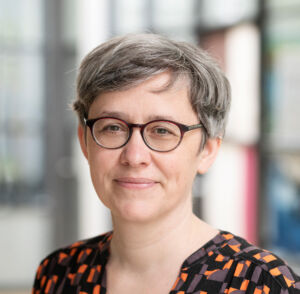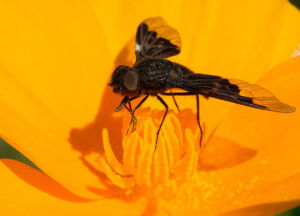In search of a nomadic pastoralism for the 21st century. A transdisciplinary development of future scenarios to foster a social-ecological transformation in Mongolia
Lukas Drees et al.
The MORE STEP research project investigates processes of change in the ecosystem of the Mongolian steppe and their socio-economic and ecological causes and consequences. The mobility of wild and domesticated herd animals plays a central role here.
The research project MORE STEP investigates processes of change in the ecosystem of the Mongolian steppe and their socio-economic and ecological causes and consequences. The mobility of wild as well as domesticated herd animals plays a central role in the survival of the ecosystem. The project therefore aims to identify societal development paths that will continue to enable the mobility of wild animals and nomadic pastoralists and their herds.
The aim of the MORE STEP research project is to analyse the social-ecological dynamics in the Mongolian steppe ecosystem and to understand the existing complex interrelations and feedback mechanisms in order to identify irreversible processes (tipping points) and thus prevent them at an early stage. The interdisciplinary approach of the project combines social scientific research on social change with natural scientific research on the regional distribution and mobility of wildlife and on changes in the steppe vegetation. The combination of field research, remote sensing and modelling allows the project team to identify social-ecological interactions and feedback processes. To identify possible tipping points and sustainable development paths indicators will jointly be developed.
In the preliminary phase of the joint project MORE STEP, the basis for a transdisciplinary integration of relevant actors (e.g. nomads, industry, governmental and non-governmental organisations) was created during a first stakeholder workshop in Ulaanbaatar. The results will be used in the current main phase.
ISOE contributes its social-ecological and transdisciplinary expertise in the following areas of the research project: By using qualitative social empirical and participatory methods, the motives for migration, traditional knowledge about and the relationship to nature will be investigated. These findings can form the basis for the development of solutions for a modern nomadic way of life.
In a further sub-project, the ISOE team is developing an integrated model of the pastoralists’ decision-making behaviour. In this model, data and findings from social and natural sciences are merged and incorporated into the development of various future scenarios. In addition, ISOE is responsible for transdisciplinary knowledge integration within the project network.
In arid regions, the influence of changing environmental conditions makes mobility a crucial survival strategy for humans and animals. While mobile grazing systems have declined sharply worldwide in recent decades, Mongolia is home to one of the last intact steppe ecosystems with traditional land use and significant biodiversity. Since the end of the Soviet Union, however, Mongolia has experienced far-reaching economic and social changes. On the one hand, the extraction of mineral resources has promoted the development of infrastructure, which contributes to the fragmentation of the steppe, and on the other hand it has created economic development opportunities and thus new jobs.
The nomadic way of life, which is culturally, socially, economically and scenically significant, is subject to major changes. While the number of families owning cattle herds has decreased, their spatial concentration in the vicinity of settlements has risen. In addition to these social factors, the consequences of climate change also exacerbate the process of change and lead to fundamental changes in the steppe’s social-ecological system. If these processes continue, the ecosystem runs the risk of reaching tipping points, after which central changes become irreversible not only for biodiversity but also for humans.
The research project “MORE STEP – Mobility at risk: Sustaining the Mongolian Steppe Ecosystem” is funded by the Federal Ministry of Education and Research (BMBF) as part of the funding measure “Kipppunkte, Dynamik und Wechselwirkungen von sozialen und ökologischen Systemen (BioTip)” (Tipping points, dynamics and interrelations of social and ecological systems).
Lukas Drees et al.
Ulan Kasymov et al.
Marion Mehring
Anika Tarne et al.
Denise Margaret S. Matias et al.
What are the causes of biodiversity loss? How can we protect biodiversity in the future? How can we create a willingness for change?
Go to Topic Page

